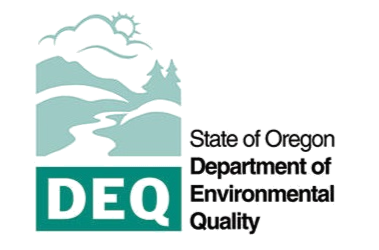
By
Oregon’s carbon cap program aims to achieve environmental justice goals alongside a reduction in greenhouse gas emissions. But in building out this one-of-a-kind program, state leaders should beware of sacrificing transparency and effectiveness to get there. Unfortunately, the program is already raising questions about their commitment to both.
The Oregon Department of Environmental Quality announced last week that it has chosen the well-regarded Seeding Justice foundation as its partner for the Community Climate Investment Fund. That initiative, which is part of the state’s Climate Protection Program to cap and lower emissions levels, allows oil companies and natural gas utilities to pay Seeding Justice for state-issued credits to cover emissions that exceed their permissible limits.
Seeding Justice would then invest the money in projects around the state that are intended to help transition from fossil fuels and reduce the impacts of climate change, particularly on communities of color, tribes, low-income and rural communities, as The Oregonian/OregonLive’s Gosia Wozniacka reported. The program is expected to raise $150 million per year – or more – depending on how many fuel suppliers and natural gas utilities opt to pay for credits.
Notwithstanding the program’s good intentions nor our shared imperative to lower emissions, there’s no getting around the fact that this is a risky set-up that gives a private entity incredible authority for a state program funded by regulated companies. Seeding Justice will spearhead decisions on which counties, communities and projects receive money without the obligation to follow public records and open meetings laws that govern state agencies and decision-making bodies. While Seeding Justice’s grants must comply with a state-approved work plan and operate under state oversight, such an arrangement does not build in by law the broad public input and scrutiny that decisions by public agencies must undergo.
In a call and emails with The Oregonian/OregonLive Editorial Board, DEQ managers stressed the importance of transparency for the program’s success and noted the agency will be negotiating a contract with Seeding Justice that seeks to protect that. Already, in addition to the requirement that Seeding Justice spend funds only in line with the agency-approved work plan, DEQ will mandate regular reporting on metrics about chosen investments, including location, emissions reductions, benefits to Oregonians and how decisions were made. Reports will be shared publicly.
But the department has already shown a willingness to shield discussions from the public with its Equity Advisory Committee, a 10-member body that has helped guide the agency’s development of the Community Climate Investment Fund. The committee recently met in a closed meeting to discuss the selection of Seeding Justice and sensitive financial information, the agency said. As an advisory committee, it does not have to follow the same open meetings requirements. But considering that DEQ emphasized how critical this committee will continue to be in guiding the climate investment fund, the agency should recognize and embrace a higher level of transparency than what the letter of the law calls for. Sensitive data can be shared in an executive session while the rest of the meeting is held publicly, for example.
The public is paying attention. In fact, Wozniacka’s story prompted Portland accountant Tom Busse, who has worked in nonprofits, to contact The Oregonian/OregonLive to draw attention to the transparency implications. “We should follow good government principles,” Busse said, a noncontroversial stance that is too frequently compromised.
Certainly, there’s nothing about Seeding Justice that triggers any particular concern – the nonprofit has demonstrated nearly 50 years of commitment to communities around Oregon, with a strong presence in rural areas. This structural arrangement, born in part because DEQ does not have legislative authority to collect carbon payments from regulated entities, would prompt questions regardless of which private entity were to administer the program. But scrutiny is necessary. This is a massive new program with broad public impact – in how it may affect the prices consumers pay at gas pumps and for heating homes and in whether it achieves the emissions reductions that are promised.
That raises another concern. While companies will be paying Seeding Justice in exchange for emissions credits from the state – $123 per ton is this year’s price – the nonprofit will be largely funding projects that have yet to produce the emissions savings that the credits are supposed to represent. That means that, by design, emissions reductions may or may not meet the state’s annual cap, considering both the time lag for projects to get up and running and the uncertainty of whether the projects will achieve the emissions reductions as projected.
Colin McConnaha, manager of DEQ’s Office of Greenhouse Gases, said the agency doesn’t expect that that one credit purchased through Seeding Justice will match up precisely with one metric ton of greenhouse gas reduction. Rather, the expectation is that some projects will deliver more and some will deliver less than that benchmark, with the group of investments as a whole evaluated for their effectiveness. While any new program will incorporate some uncertainty, the number of questions surrounding this effort ratchet up the degree of difficulty in achieving its goals.
To be sure, the two-dozen fuel suppliers and natural gas utilities regulated under the Climate Protection Program aren’t required to buy credits through Seeding Justice. They can comply with the program by staying within their allowance or trading amongst themselves for credits. But the reality is that many will see little choice but to do so. The market for trading in this only-in-Oregon program is small and many of the companies will be unable to meet demand and limit price hikes without exceeding their caps, at least until greater clean-energy sources are developed.
DEQ should revisit its program and objectively examine how it can increase transparency and certainty of emissions reductions under the current set-up, or whether the agency should seek legislative authority to take payments itself. Oregon should be following good-government principles; equally important, it must be willing to change course when it is not.
-The Oregonian/OregonLive Editorial Board

